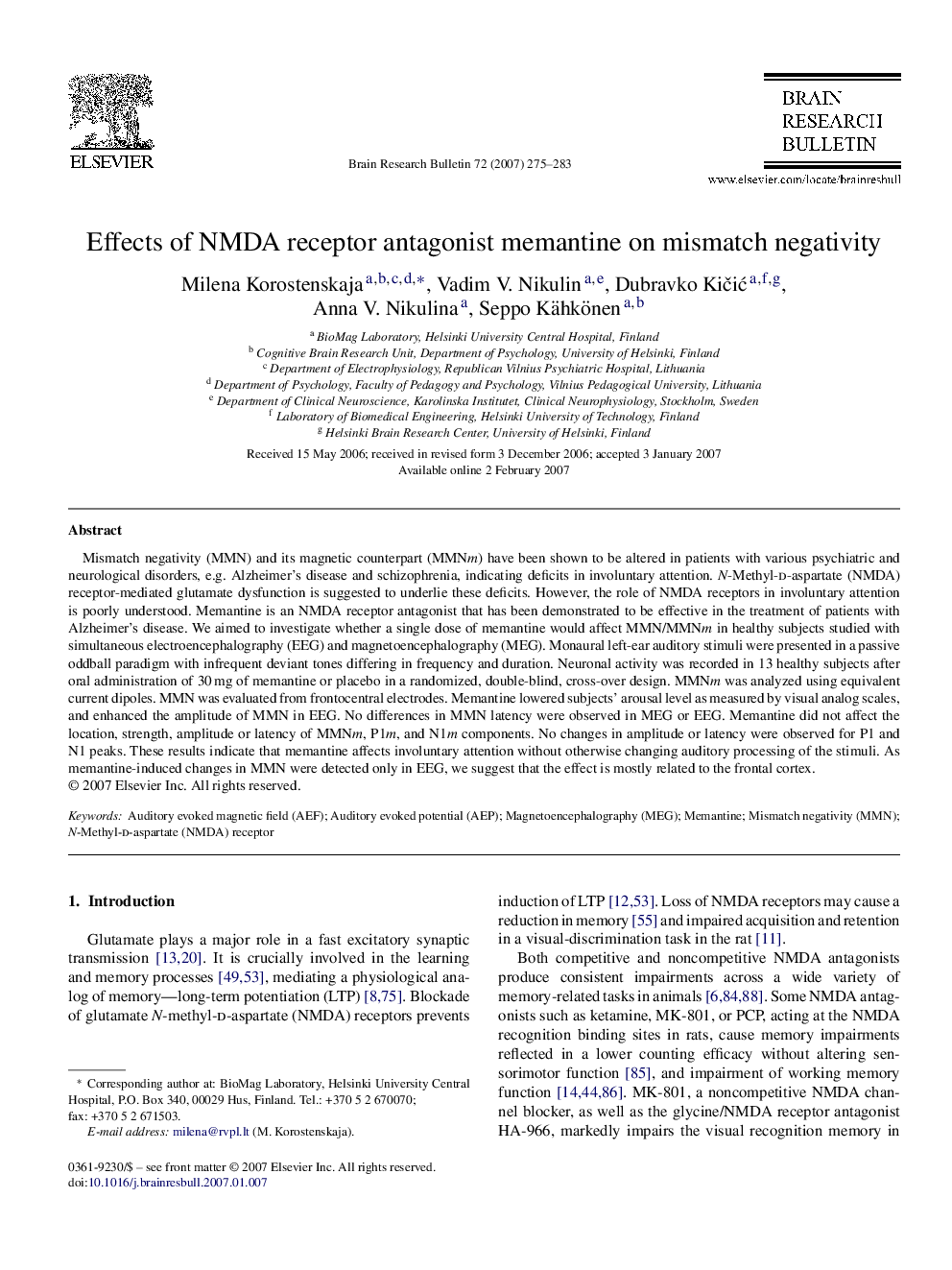| Article ID | Journal | Published Year | Pages | File Type |
|---|---|---|---|---|
| 4320157 | Brain Research Bulletin | 2007 | 9 Pages |
Mismatch negativity (MMN) and its magnetic counterpart (MMNm) have been shown to be altered in patients with various psychiatric and neurological disorders, e.g. Alzheimer's disease and schizophrenia, indicating deficits in involuntary attention. N-Methyl-d-aspartate (NMDA) receptor-mediated glutamate dysfunction is suggested to underlie these deficits. However, the role of NMDA receptors in involuntary attention is poorly understood. Memantine is an NMDA receptor antagonist that has been demonstrated to be effective in the treatment of patients with Alzheimer's disease. We aimed to investigate whether a single dose of memantine would affect MMN/MMNm in healthy subjects studied with simultaneous electroencephalography (EEG) and magnetoencephalography (MEG). Monaural left-ear auditory stimuli were presented in a passive oddball paradigm with infrequent deviant tones differing in frequency and duration. Neuronal activity was recorded in 13 healthy subjects after oral administration of 30 mg of memantine or placebo in a randomized, double-blind, cross-over design. MMNm was analyzed using equivalent current dipoles. MMN was evaluated from frontocentral electrodes. Memantine lowered subjects’ arousal level as measured by visual analog scales, and enhanced the amplitude of MMN in EEG. No differences in MMN latency were observed in MEG or EEG. Memantine did not affect the location, strength, amplitude or latency of MMNm, P1m, and N1m components. No changes in amplitude or latency were observed for P1 and N1 peaks. These results indicate that memantine affects involuntary attention without otherwise changing auditory processing of the stimuli. As memantine-induced changes in MMN were detected only in EEG, we suggest that the effect is mostly related to the frontal cortex.
